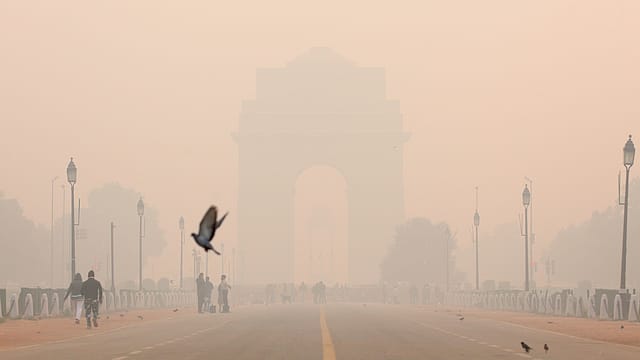Centre asks states, UTs to step up surveillance against pollution-linked illnesses
ADVERTISEMENT

Even as several Indian cities including the National Capital Region of Delhi are reeling under severe air pollution, Union Ministry of Health and Family Welfare has asked the state health departments and healthcare facilities to scale up participation in sentinel surveillance systems for air pollution-related diseases under the National Programme on Climate Change and Human Health (NPCCHH).
In a letter to chief secretaries and advisers to administrators of states and UTs, on November 18, health secretary Punya Salila Srivastava called for developing district and city-level action plans for climate change and health under NPCCHH — including strategies for air pollution — and expanding the network of sentinel hospitals for monitoring air pollution-related illnesses in respective states and Union Territories.
A health advisory on air pollution prepared under the NPCCHH notes that 18% of the total deaths in India can be attributed to air pollution. Of the 1.7 million annual deaths that are attributable to illnesses caused by air pollution, chronic obstructive pulmonary diseases (COPD) accounted for 34.5%. Ischaemic heart disease (29.2%), Stroke (16.2%) and Lower respiratory infections (11.2%), the advisory says.
January 2026
Netflix, which has been in India for a decade, has successfully struck a balance between high-class premium content and pricing that attracts a range of customers. Find out how the U.S. streaming giant evolved in India, plus an exclusive interview with CEO Ted Sarandos. Also read about the Best Investments for 2026, and how rising growth and easing inflation will come in handy for finance minister Nirmala Sitharaman as she prepares Budget 2026.
The major sources of air pollution were identified as industrial emissions, vehicular exhaust, re-suspension of road dust, construction and demolition activities, refuge burning (garbage, horticulture wastes. crop residues etc.), use of solid fuels for cooking and burning of firecrackers etc.
The Union Health Secretary wanted the states to enhance their preparedness, including intensifying public awareness campaigns, disseminating targeted messaging through designated mass media channels in regional languages, strengthening the capacity of the healthcare workforce and scaling up participation in sentinel surveillance systems for air pollution related diseases.
Based on the air quality data, it was proposed that healthcare facilities may strengthen appropriate healthcare service provisions to address health issues arising in their respective area and also, for the outreach activities at the community level.
The advisory calls for strengthening of healthcare services provisions including patient care services at the emergency departments; outdoor departments etc.; availability of medications, equipment in the emergency departments (ED) / OPDs to treat the illnesses; human resources to attend patient care in departments; logistics, enhancement of beds if required in (ED) etc are some of the other suggestions.
